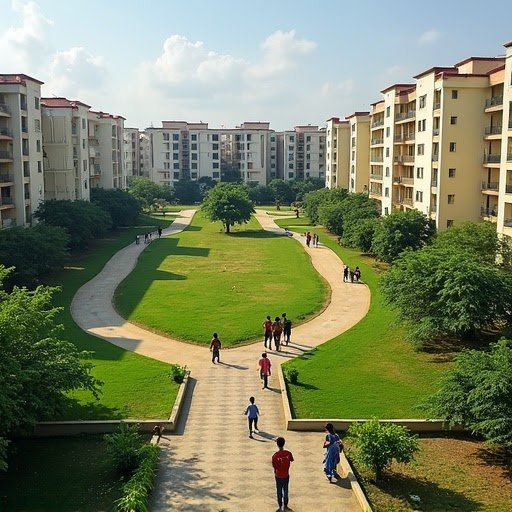[ad_1]
-
Introduction
In Maharashtra, co-operative societies—whether housing societies with residential flats or premises societies with commercial spaces—form the backbone of urban living. An issue that repeatedly causes friction between management committees and members is the levy of non-occupancy charges (fees charged when a member lets out their flat or office on rent/license).
For years, societies exploited this provision, sometimes charging exorbitant sums under the guise of non-occupancy. This created disputes, litigations, and confusion about whether Premises Societies (offices/shops) could impose higher charges than Housing Societies.
The Government of Maharashtra finally stepped in with a crucial clarification through its Government Resolution dated 12 November 2014, applying a uniform principle to both.
Read Maharashtra Govt Government Resolution dated 12 November 2014: Click here
🔹 Facts and Background
-
Societies are empowered under the Maharashtra Co-operative Societies Act, 1960.
-
Housing Societies had restrictions imposed since 1996/2001 on non-occupancy charges—capped at one time the service charges.
-
However, Premises Societies argued that they were different and not bound by these caps. Many charged members arbitrary amounts (sometimes linking to market rent or per sq. ft. rates).
-
Disputes reached the Bombay High Court, leading to committees being formed. The expert committees advised against linking non-occupancy charges to rent or market value.
-
To resolve the confusion, the GR of 12 November 2014 clarified uniformity.
🔹 The Law (Government Resolution Explained in Simple Words)
The GR of 12.11.2014 issued under Section 79A of the Maharashtra Co-operative Societies Act clarified:
-
Non-Occupancy Charges for Premises Societies shall be the same as Housing Societies.
-
In simple words, both follow one common rule.
-
-
Cap on Charges: Societies cannot levy more than one time the monthly service charges.
-
Invalid Basis: Non-occupancy charges cannot be based on capital value, market rent, or arbitrary general body resolutions.
-
Equality Principle: Members in all societies must be treated uniformly to avoid exploitation.
Thus, whether you own a flat in a housing society or an office in a premises society, your society cannot overcharge you with inflated non-occupancy fees.
🔹 Lesson for Citizens and Lawyers
This GR is more than just about charges; it is a reminder of how law evolves when disputes surface. A few takeaways:
-
For Members: If your society demands large sums as non-occupancy fees, you have the right to object and rely on this GR.
-
For Managing Committees: The society enjoys no unfettered discretion. Even general body resolutions cannot override government directives issued under Section 79A.
-
For Policy: Uniformity protects equality, reduces litigation, and prevents the misuse of co-operative power by dominant groups.
🔹 Takeaway for the Public
-
Cap fixed: Non-occupancy charges cannot exceed one time the service charges.
-
Uniformity: Both Housing and Premises (commercial) societies are bound by the same rule.
-
Challenge illegal demands: Overcharging can be challenged before the Registrar of Co-operative Societies or the Co-operative Court.
-
Law as an equaliser
Conclusion
The Maharashtra Government’s 2014 Resolution sends a clear message: law is about fairness, uniformity, and protection of members’ rights. Co-operative societies, be they residential or commercial, must operate within the bounds of reasonability and legal limits. For citizens, it is not the rhetoric of authority but the letter of the law—accurately researched and forcefully applied—that ultimately prevails.
[ad_2]
Source link


.png)